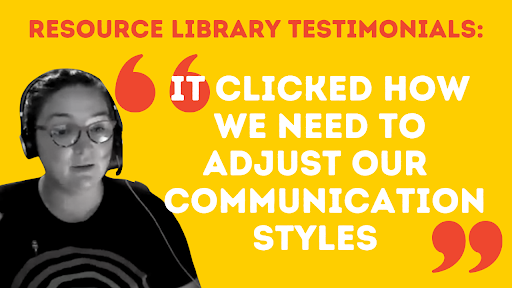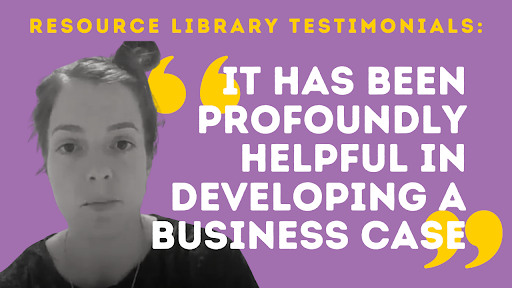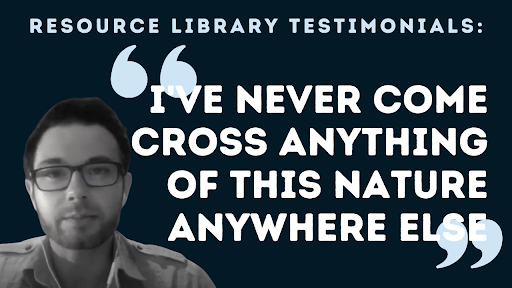"The Resource Library Helped Me Feel Seen": 8 Members Explain Why They Joined

Neurodiversity Media | 06/12/2020
Resource Library members share their stories on why they joined, including their favourite resources.
We thank our neurodivergent members for their visibility, despite the stigma and discrimination that still exists, to support the vision of the Resource Library. And we thank our neurotypical allies for their public advocacy to invest in a safer, neurodiverse workplace.
Brendan Raymond, Pro Member
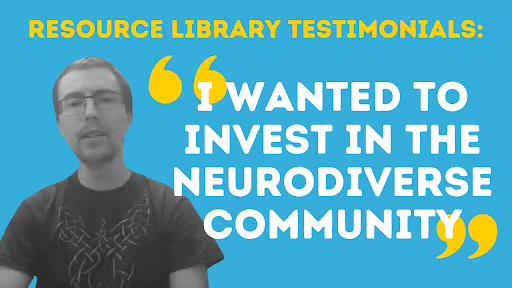
Hey, I’m Brendan and I’m a Pro member of the Resource Library. I’m on the autism spectrum and I work at a museum with kids and became a member of the Resource Library for two main reasons.
Firstly, I wanted to invest in the neurodiverse community. I know the Resource Library was something set up to support the community and I wanted to invest into that so it can stay around and support more people who are looking to find work, or be better supported in the workplace that they’re already in, or managers looking to better support their employees.
The other reason is to be better connected to the neurodiverse community. As someone who is on the autism spectrum, I want to be connected to other people who are on the spectrum or people who are neurodiverse.
To be able to connect to them, and understand what helps them with their lives and what helps them with how they interact with work, so I can help my life and so I can share my own experience. I really appreciate that element of the Resource Library, and I’m happy to be a Pro member and contribute in this way.
Dr Rebecca Flower, Free Member
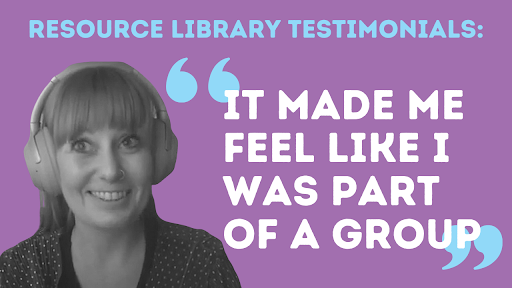
Hi I’m Dr Rebecca Flower, I’m a teaching and research lecturer at La Trobe University in Melbourne, and I also have ADHD. My favourite resource in the Research Library is an article by Isabelle Quigley called “Why Neurodiversity Needs Visual Storytelling”.
This is a short article but it really resonated with me because Isabelle speaks about having ADHD and recognises that visual images and storytelling is really helpful for her in understanding content.
It resonated with me because I used to be disappointed in myself for not understanding university lectures, verbal content and sometimes reading content, but I often find that if I draw the information out myself, or if I see pictures with information, it helps me process it. So while it’s a short article, the content is unique as I hadn’t seen it elsewhere. It made me feel like I was part of a group of people with the same experience.
It also really helps with my job because as a teacher and lecturer I work with students, many of whom are also neurodivergent, and it has me thinking about what really would’ve helped me and what might help the students I talk to process information.
When I’m delivering some really thorough content on something that might seem a bit dry for example, it has me thinking about how I can put that in picture form or produce it in different ways and putting the information out there in a way that might be easy to process for different people.
As a researcher, it really got me thinking about how I can better communicate some of the findings from my research to the community, because ultimately as a researcher, I hope to produce research that is of benefit to the community, and also accessible to the community.
The Resource Library really highlights that even with short articles, because they are written by people who are neurodivergent, it really gets you thinking about things that can make change. Often they’re not big things that need to happen, they can be these tiny little things that don’t take people very long, that are likely to benefit people like visual storytelling and adding that as a resource, so thanks!
Cheng, Pro Member
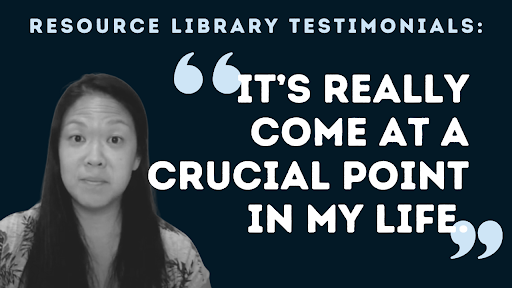
Hi there, I’m Cheng and it turns out that I was Neurodiversity Media’s very first Pro Member back in August 2020. When I first stumbled upon the website, I had no idea who they were. I didn’t know Rachel or the team, but I liked what I saw.
It seemed like an oasis of thoughtful, well researched and well written information about being neurodiverse in the workplace and what it means. So I took that leap and bought myself a Pro Membership for my birthday and it’s the best act of self-care that I’ve ever done.
There’s a lot out there for neurodiverse families, but not enough practical stuff for professionals, particularly women. It’s really come at a crucial point in my life. I’m really glad I have the resources to look back on and I’m glad I have the community to talk to. It’s made me better in so many ways.
It’s made me a better employee, team leader, I’m learning how to advocate for myself and others better, I’m learning how to guide and nurture with empathy, and how to harness strength, because our collective strength is within a diverse workforce, where everyone feels supported, included and understood.
We’re all used to getting out news for free and a subscription fee may seem like a big ask but all things considered, it's an investment in knowledge, talent and our future. I don’t think you’d regret it one single bit because I certainly haven’t. It’s definitely worth what it is regardless of where you are in a company.
Zoe Kennedy, Pro Member
My name is Zoe and I work with an organisation called Pride in NSW, an LGBTQIA+ staff network across the NSW public sector. I came across Neurodiversity Media through LinkedIn. Someone highlighted one of the articles so I decided it was a good idea to have a look at the website.
I found the Resource Library and signed up as a free member and had a look around, but didn’t really commit the time to look at it properly. Then the call came out saying we needed to support this resource in a different way, so I took the opportunity to become a free member and paid my $99 and have used that as a kick up the bottom for myself to look at it a bit more deeply.
So far, my favourite thing from the Resource Library is how Rachel, CEO of Neurodiversity Media communicates with her staff. One of the employees is neurodivergent and the other is neurotypical and it was a transcript of a meeting they had, asking for feedback on how the instructions for the next day were provided.
She had admitted to writing quite verbose emails in long paragraphs and one of the employees said they actually prefer bullet points and they’d let her know if they needed something via message, whereas the other staff member said they’d prefer to just pick up the phone.
Seeing how each of them had responded really clicked for me how we need to adjust our communication styles and the best thing to do is just to open up the conversation. I also found useful the templates for checklists around communication styles and project management.
[Editor Note: Template checklists are only available to logged-in Pro Member of the Resource Library.]
Tejaswi Subramanian, Free Member
Hi I’m Tej, I’m autistic and recently signed up for the free Resource Library membership at Neurodiversity Media. I only realised I was on the spectrum last year, so I took a few months off work and other situations just to think about different aspects like the way in which my autism manifests.
It was very obvious to me that I was masking in the workplace and not allowing myself to be who I was and play to my strengths. I stumbled upon an article that talks about how professionals mask every day in white collar jobs. That was a really interesting piece for me and I was so glad that people were talking about it.
A lot of them said that even though I know I’m masking, I still do. That was interesting for me because I don't know what the goal is for me but I always think “if I am masking, what’s the goal for me here? Do I completely stop masking to be able to perform my work? Or do I just become conscious of it and know what works for me and what doesn’t?”.
That was a great starting point for me and from there I checked out a lot of other resources. The other was one about someone who was a journalist and their experience with dyspraxia talking about how they don’t have much access to occupational therapists that might be able to diagnose them officially because it’s something that’s often identified in children, not adults.
The idea of autism is often presented to us as a bit of a flex on young people but even as we age, we don’t grow out of the condition. It’s interesting how a diagnosis may not mean much, because at the end of the day your workplace is only going to be able to do so much to accommodate you.
The other day I was talking to someone who had ADHD, and they said it doesn't mean tomorrow they go to work and I get to pick whatever task I want or for however long I want. That’s never going to be how a modern workplace is.
Accommodations are limited, for example they can probably provide you a certain space to work out of, or noise cancelling headphones, so it’s really nice to hear other people talk about the same issues that I have in the workplace and it helps me feel seen.
Siobhan Lamb, Pro Member
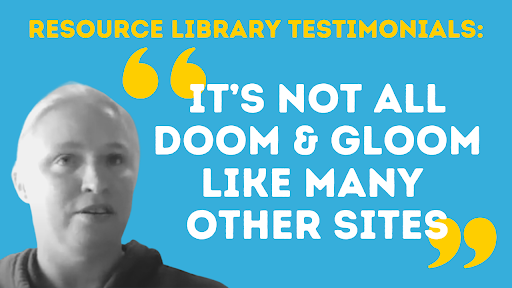
Hi, my name is Siobhan Lamb. I run a company called Embrace Difference that supports neurodivergent kids. I myself am neurodivergent, my children are also neurodivergent and I help kids who are neurodivergent.I like the Resource Library for two main reasons. Firstly, I can direct parents there that can read stories about other people who are just like their kids, and can see success stories and it’s not all doom and gloom like many other sites that they see.The second reason is it allows me to connect with other people who are neurodivergent who are working in the field, helping neurodivergent kids and neurodivergent adults.
Emily Kendall, Free Member
Hi I’m Emily and I have ADHD. I’m an engineer and I’ve been working at my company for about seven years. I work at a corporate company, AXS200 listed company that has about 3000+ employees.
In the past 18 months I’ve set up a neurodiversity advocacy community special interest group to advocate for the value of neurodiverse individuals in the workplace, and to try reduce some of the stigma around neurodiverse behaviours and to perform in a neurotypical workplace.
The Resource Library that Neurodiversity Media have put together has been profoundly helpful in developing a business case we can share with our company to get some consistent messaging out there.
Some of my particular favourite resources for myself was the ADHD fact sheet. I found it useful in working out what is a reasonable accommodation and how to approach those conversations with my managers which is something that has always been quite a challenge for me - the disclose or not to disclose.
That’s something we’re trying to work on as a collective group. If we can get the culture of the workplace to somewhere where we can embrace people who think differently, or nuanced behavioural traits, then we can get to a place where people are willing to disclose their diagnosis, and some of the inherent challenges that are associated with these diagnosis can’t be held against them when it comes to performance management.
Currently some of the descriptors in performance management brackets have neurodiverse traits in them, so if we don’t disclose and those things are identified, it can work against us. But if we can get to a space where people are open to say “I have ADHD and I may be disruptive, and it can’t be held against me otherwise it may be a discrimination case”. We’re not really in a space where that can happen yet.
What has been really helpful is the statistics around neurodiverse employment. It helps to emphasise the opportunities we have. Similarly because it is such a confronting and challenging topic, I really found useful the memes that were put together. I find that sometimes humour is a good tool to cut through some of the confrontational nature of what we’re trying to discuss. Particularly I liked that one around whether to disclose or not to disclose and stigma in the workplace. That’s definitely pertinent to what we’re trying to combat at my company.
Thank you so much for what you’ve provided and support that’s enabled me to give to my peers in my company who have struggled as neurodiverse people when we’re just trying to make the place more of an inclusive environment where more people feel ok to be authentically themselves.
Mathew Farmakis, Pro Member
Hi My name is Mathew, and I am autistic. I became a Pro member of Neurodiversity Media’s Resource Library seven months ago. This was largely driven by my curiosity. I never come across anything of this nature anywhere else.NDM is quite unique. So far, my favourite resource type is the stories that outline challenges faced and solutions identified by relatable neurodivergent professionals. That said, I know there are bigger and better things to come for the Resource Library.
